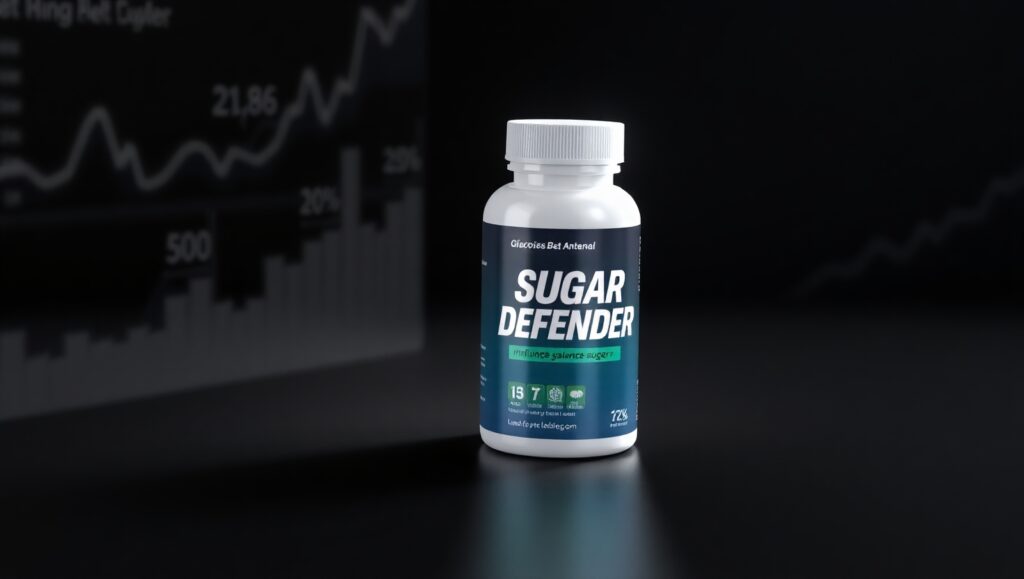Preventing Sugar Spikes: A Guide to Sugar Defender Strategies

Introduction: Understanding the Importance of Preventing Sugar Spikes
Sugar spikes, often referred to as blood sugar spikes, occur when the glucose levels in your bloodstream rise too quickly. These spikes can lead to a variety of health problems over time, such as fatigue, increased cravings, and even long-term conditions like diabetes. For those seeking to control blood sugar levels, the term “Sugar Defender” refers to a set of strategies and habits that help stabilize glucose levels and prevent these sudden spikes. In this article, we will explore effective methods and tips for becoming a true Sugar Defender, safeguarding your health in the process.
1. The Role of Diet in Preventing Sugar Spikes
Focus on Low-Glycemic Foods
One of the most effective ways to defend against sugar spikes is through dietary choices. Low-glycemic foods, such as whole grains, vegetables, legumes, and lean proteins, digest slowly, releasing glucose into the bloodstream at a steady pace. This helps maintain stable blood sugar levels, reducing the chances of sharp increases. Incorporating these foods into your meals can make you a true Sugar Defender by keeping your blood sugar levels steady throughout the day.
Balancing Macronutrients for Better Sugar Control
A balanced plate is key to preventing sugar spikes. Aim to include a combination of carbohydrates, proteins, and fats in each meal. Protein and healthy fats slow down the digestion of carbohydrates, preventing rapid glucose absorption. For example, adding avocado or a handful of nuts to a meal can help stabilize blood sugar levels and keep you feeling full longer, further minimizing the risk of sugar spikes.
2. Regular Exercise: A Powerful Sugar Defender Tool
How Physical Activity Helps Control Blood Sugar
Exercise is a crucial component of preventing sugar spikes. When you engage in physical activity, your muscles use glucose as a source of energy, which helps lower the amount of sugar in your bloodstream. Regular exercise, such as brisk walking, cycling, or swimming, can improve insulin sensitivity, making your body more effective at utilizing glucose and preventing sudden increases.
Ideal Exercise Types for Sugar Control
Aerobic exercises, like running or cycling, can lower blood sugar by increasing insulin sensitivity. Resistance training, such as weight lifting, also plays a role by helping muscle cells absorb glucose more efficiently. Aim for a mix of both aerobic and resistance exercises for optimal blood sugar management and to become a Sugar Defender.
3. Managing Stress: The Hidden Trigger of Sugar Spikes
How Stress Impacts Blood Sugar
Stress is often an overlooked factor in sugar spikes. When you’re stressed, your body releases cortisol, a hormone that can increase blood sugar levels. Chronic stress can lead to long-term imbalances in glucose regulation. Therefore, managing stress is an essential part of becoming a Sugar Defender.
Stress-Relief Techniques for Blood Sugar Control
Incorporate relaxation practices such as deep breathing exercises, yoga, or meditation into your daily routine. These activities can reduce cortisol levels and help your body maintain balanced blood sugar levels. Even taking short breaks during your day to practice mindfulness can have a significant impact on your sugar levels.

4. The Importance of Sleep in Sugar Management
How Lack of Sleep Affects Blood Sugar
Sleep is a critical factor in preventing sugar spikes. Poor or insufficient sleep disrupts insulin sensitivity, making it harder for your body to regulate blood sugar effectively. When you’re sleep-deprived, your body tends to store more fat, and insulin becomes less effective, leading to higher glucose levels.
Tips for Better Sleep Quality
To improve your sleep quality and regulate blood sugar, establish a consistent sleep routine, create a relaxing bedtime environment, and avoid stimulants like caffeine or heavy meals before bedtime. A good night’s sleep helps your body function properly and supports sugar defense by ensuring your hormones remain balanced.
5. The Power of Hydration: Keeping Your Blood Sugar Balanced
Water’s Role in Blood Sugar Regulation
Hydration is another essential factor in preventing sugar spikes. Water helps your kidneys flush excess sugar from the bloodstream through urine. Staying well-hydrated supports the body’s natural ability to maintain balanced blood sugar levels.
How Much Water Should You Drink?
While individual needs vary, a general guideline is to drink at least 8 glasses (64 ounces) of water per day. However, if you are active or live in a hot climate, you may need more. Herbal teas or infusing your water with fruits and herbs can also enhance hydration while providing additional health benefits.
Conclusion: Becoming a Sugar Defender for Life
Preventing sugar spikes doesn’t require drastic changes; instead, it’s about adopting simple, sustainable habits that support long-term health. By focusing on a balanced diet, regular exercise, stress management, quality sleep, and proper hydration, you can become your own Sugar Defender. These strategies not only help prevent blood sugar spikes but also improve overall well-being, energy levels, and quality of life.
By making these changes, you’re not just avoiding sugar spikes—you’re proactively supporting your health and future. Keep these tips in mind, and become the best Sugar Defender you can be!